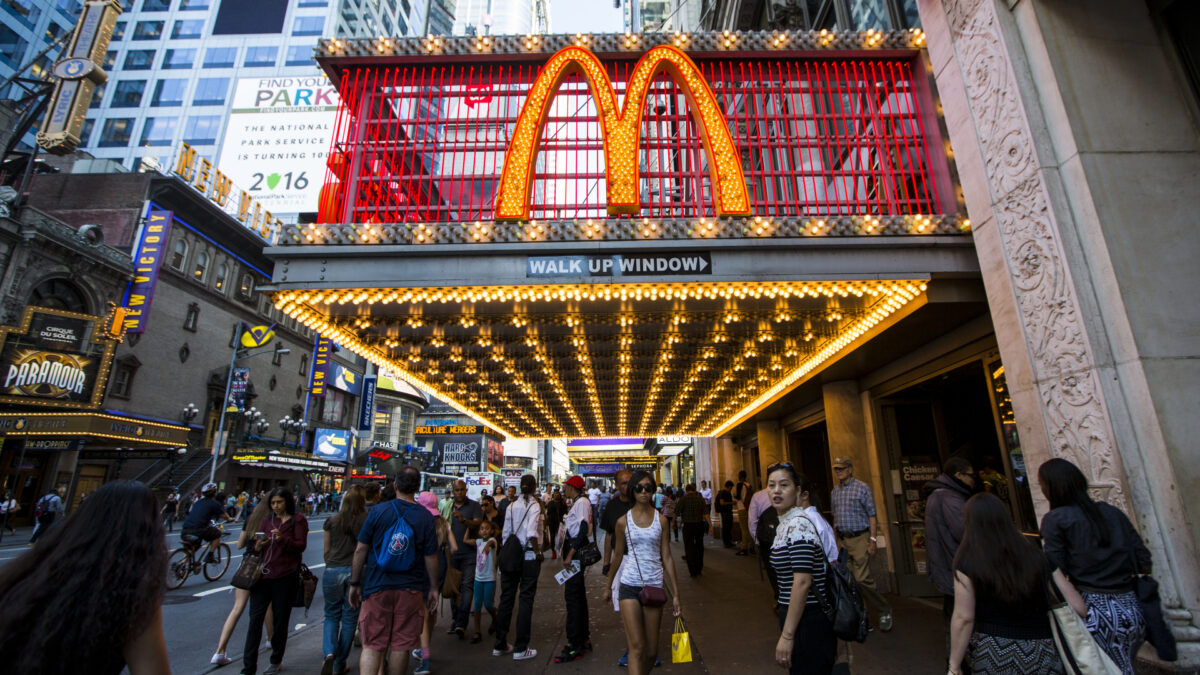
McDonalds Sues Ousted CEO, Alleging Employee Relationships
McDonalds says its suing Stephen Easterbrook, the CEO it ousted in 2019 over an inappropriate relati..
McDonalds says its suing Stephen Easterbrook, the CEO it ousted in 2019 over an inappropriate relationship with an employee, alleging on Aug. 10 that he covered up relationships with three other employees and destroyed evidence.
The company now wants to reclaim millions of dollars in compensation paid to Easterbrook.
“McDonalds does not tolerate behavior from employees that does not reflect our values,” said McDonalds President and CEO Chris Kempczinski, who was promoted following Easterbrooks departure, in a message to employees on Aug. 10.
The lawsuit puts a spotlight—again—on a years-long reckoning over sexual harassment at Chicago-based McDonalds and its 39,000 restaurants. In the U.S. alone, more than 50 workers have filed separate sexual harassment charges against McDonalds with the U.S. Equal Employment Opportunity Commission or in state courts.
Leaders with Fight for $15, which supports higher wages and unions for fast food workers, said Aug. 10 that McDonalds should use any money it recoups from Easterbrook for worker-led programs that combat sexual harassment.
In his message to employees, Kempczinski said he is committed to making sure employees are “encouraged and comfortable coming forward with information about any behavior that doesnt align with our values.”
McDonalds fired Easterbrook in November of 2019 after he acknowledged exchanging videos and text messages in a non-physical, consensual relationship with an employee. Easterbrook told the company that there were no other similar instances. An initial search of his cellphone confirmed that.
Based on what the company knew at the time, McDonalds board approved a separation agreement “without cause” that allowed Easterbrook to keep nearly $42 million in stock-based benefits, according to Equilar, which tracks executive compensation. Easterbrook also collected 26 weeks of pay, amounting to compensation of about $670,000.
According to the lawsuit, McDonalds received an anonymous tip in July that Easterbrook had engaged in a sexual relationship with another employee. After an investigation, McDonalds confirmed that relationship as well as two other physical, sexual relationships in the year before he was fired. Easterbrook also approved a special grant of restricted stock, worth hundreds of thousands of dollars, to one of those employees, the lawsuit said.
The company said on Aug. 10 that Easterbrook removed evidence of those relationships—including sexually explicit photos and videos sent from corporate email accounts—from his cell phone, preventing investigators from learning about them prior to his firing. But that evidence remained on the companys email servers.
McDonalds didnt say why those servers werent checked during its initial investigation. In the lawsuit, the company says it relied on Easterbrook—its highest-ranking executive—to be truthful.
“That reliance caused the company injury,” McDonalds said in the lawsuit.
In the lawsuit, which was filed in Delaware, McDonalds said it would not have terminated Easterbrook without cause if it had known of the additional relationships.
Tim Hubbard, an assistant professor of management at the University of Notre Dames Mendoza College of Business, said firing a CEO with a cause can lead to protracted, expensive legal battles, which is why boards try to avoid it. He applauded McDonalds for taking action.
“McDonalds shows that they are a good steward of their shareholders money when they try to recover funds that were inappropriately paid out,” Hubbard said.
McDonalds is now aRead More – Source

